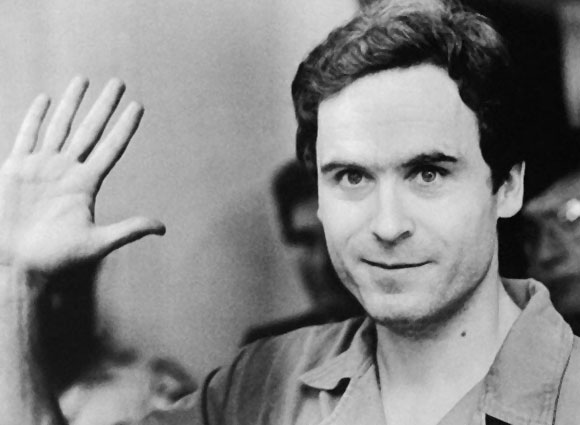
Let's say that you know who I am, you were on a Peace Corps mission in this country and saw me doing this slaughter, and, now, you see me in front of you standing in line, waiting for my cup of coffee. You can't stop me from killing, and what I did there doesn't matter legally, here, standing in line at Starbucks in Florida. So instead of giving up, being the altruistic and brave soul that you are, you tell me that you know what I am, and that you want to talk. Now, I'm an articulate and charismatic fellow, who loves to argue with an intelligent mind, so I engage you. You try to convince me to stop the needless killing.

At first, you say, "Don't you realize what you are doing is evil; it's just completely immoral". "Why must I be moral?" I ask. You think about it and try to think of some moral quality other than the circular "because its right!". You are getting frustrated with the your inability to come up with answers, and almsot say "Jesus" or "God" out of frustration even though your are an atheist. But then, it occurs to you: it benefits him to be moral. Moral is a pragmatic quality--it is for his good. And after a fraction of second, which felt like an eternity, you say, " Because, you will live a lonely man, rejected or unable to share your life completely with another, and you will die a hated man". "You will be completely and utterly rejected". So I reply "No, that is not true, for I am loved by my brothers and that is all that matters. We are all we need. The world's opinions mean nothing to me, only those of my brothers". "I am happily socialized". " I am happy in general".
At this point, you are a little flustered, you have seen this man do atrocity with a beaming smile, and now speaking to him, you see he is the image of calm contentment. You think, "how do I shake this evil bastard. What can I tell him that would convince him of his own wretchedness, despite the fact that it is in his interest to do what he does". Suddenly, it strikes you: "Empathy!". I lacks empathy, you need to allow me to experience empathy. It just so happens that you you've been working with a varient of oxytocin that makes even autistic children see the emotions, to have facial feedback and mirror their feelings. So you ask to be excused for a moment, you get up, go to your car retrieve a vile and syringe out of a cooler, fill the syringe, put the vile back into the cooler and then go back to the table. And say, "I've got another argument".

Then, you stab me, pushing hard on the plunger and emptying its amber contents into my veins.
I stare blankly at you and then convulse wildly, suddenly seeing all the faces of the people I killed in a new light: I sees their suffering. I see their sadness, anxiety, absolute terror and pain, but not equivocally as a concept, but as the simple feeling of suffering. I experience at that moment, I take part in that moment of their absolute pain, their suffering. It's intense. Then I come out of it. But, now, I am conflicted. I still want to kill, but, now, I have seen suffering. I have both reason to kill and not to kill. I love the hunt, the power, the feeling of efficacy and most of all my friends; but, I don't want to cause suffering qua suffering (phenomenal, purely sensate). I now understand what it means to be immoral.
You, looking down at me in a mix of pity and relish, realize that now you don't know what moral is. It can't just be a feeling. Then it would be almost nothing, a vapor, a passing moment , but thats not what it means to you when you think about it: moral is something you should do despite your feelings, desires or interest. Then you ask yourself, "Is there anything like that for real or is it just my subjective experience that approves or disapproves?".
Then you think about what you just did. Not all feelings are created equal, and you just showed me how to realize the most relevant to moral suffering. You see suffering and pleasure---experienced as those simple, purely sensate, phenomenal qualities---as a dichotomy of continuum, where there suffering is to be avoided, where no creature would want it to exist, and pleasure is that which is choice-worthy by its intrinsic ,purely phenomenal nature. In that moment you realize that suffering is more to be avoided than pleasure to be sought. Any being who could see suffering, truly see it in another, would avoid it. So when you look down at me, and I am looking at you, with a confused look that says I am thinking: I both want to kill you for stabbing me with a needle and don't want to cause suffering to you or others.

And we both realize that the only reason that I did what I did was because I didn't know suffering as anything more than a disembodied concept, only equivocally, and, now, I know it truly as the powerful, profoundly, intrinsically negative feeling---something to be avoided in any world. I have seen the quintessence of moral: it is to avoid causing suffering.
The END
_________________________________________________________________________________________________________________________________________Notes:
There is a distinction to be made between pain and suffering. Suffering is that which is experienced as bad, or pain qua pain, and is something that even a masochist would avoid. A masochist may experience pain but doesn't experience pain qua suffering their deviant (or fun) act. It is a simple phenomenal quality and without concept and only as a simple sensate nature: it is badness and intrinsically to be avoided in any thing that has the ability to experience it and avoid it.
Suffering is required for there to be a Moral wrong, for without suffering there could be no one wronged, for there could be no harm in any evaluative sense. To kill would be very akin to kicking a fragile vase (that I own): Destruction would happen but I haven't done anything immoral because nothing was harmed only broken. There would be no value in any real sense only structure. It is only sensate value that could give that vase any significance at all.
As humans we develop a firmer conceptual "I", we have certain preconditions for our experience, like time and space, frequency and number, individuation and sameness, and causation and intensity. In addition, most of us are able to mimic the affectional expressions, which mimic to some degree phenomenal states of others, and allow us to experience to some degreed the suffering or flourishing of another person---at very least it allows us to take part in the general evaluative, sensate qualities of feeling good or bad. Given this these preconditions and the actual existence of a necessarily bad state (sensorily so), we are able to find ways to reduce through those categories, like reduction of suffering in time, in number of people (or animals), and in intensity. Given these existant qualities phenomenal suffering and not suffering (having not choice-worthy or choice-worthy as part of their phenomenal, purely sensate quintessence) and of preconditions of full human experience, we are able to make moral statement that are true or false. We know that we are causal entities who can affect the intensity and number of people who suffer by our actions, so we can say that this action is moral or immoral with a force akin to the force of the categorical imperative. Suffering and non-suffering give a person a reason to not cause then intrinsically in their nature---they are necessarily choice-worthy or not choice-worthy by nature. The only time suffering would be chosen is that if it reduces suffering in frequency, duration, intensity or another category or all catagories. It is never chosen for itself; and, in itself only, would necessarily be avoidance worthy.
Moral statements can be true or false because there is a necessarily avoidance worthy, phenomenal state called suffering, in self or other, which would be avoided if truly known---that is, more than equivocally and instead phenomenally---and that gets filtered into the way we must break down our experience as causal organisms. The ability to experience oneself as an "I" a causal creature with an awareness of causal efficacy and the awareness of suffering as it is in sensate, and the awareness that others are feeling beings capable of experiencing suffering allows us to ground moral statements into truth or falsity. And, it allows the actor to desire something and at the same have reasons to avoid acting on that desire, reasons that have intrinsic motivation. They also make moral statements something whose truth can be discovered, for we can always discover that this or that action causes suffering and is immoral for us to do. Some action is immoral if it is an action that causes suffering without the quality of reducing overal suffering; Some action is moral if it reduces overal suffering within a situation. We can say action x is immoral if and only if it causes suffering without reducing a greater amount of suffering (=creates suffering needlessly). So any action predicated in causes suffering needlessly is morally wrong.
However, this foundation of moral statements does not allow for moral blameworthiness, for any act would not be unethical because it lacks intent to suffering. No one would willingly choose suffering, something that is necessarily bad. We can still say some action was morally wrong, without saying that the actor is morally blameworthy. We can say that an action is immoral for me to do because it causes suffering, and we can say that the other person only committed that same act because of a lack of knowledge. That person only needs to discover the truth of your moral statements. The truth of some moral statements may require more than an argument; they may require chemical intervention, such as in the case of a sociopath. Some people may not have access to moral truths.
HU5C2E283DBN
thank you
ReplyDelete